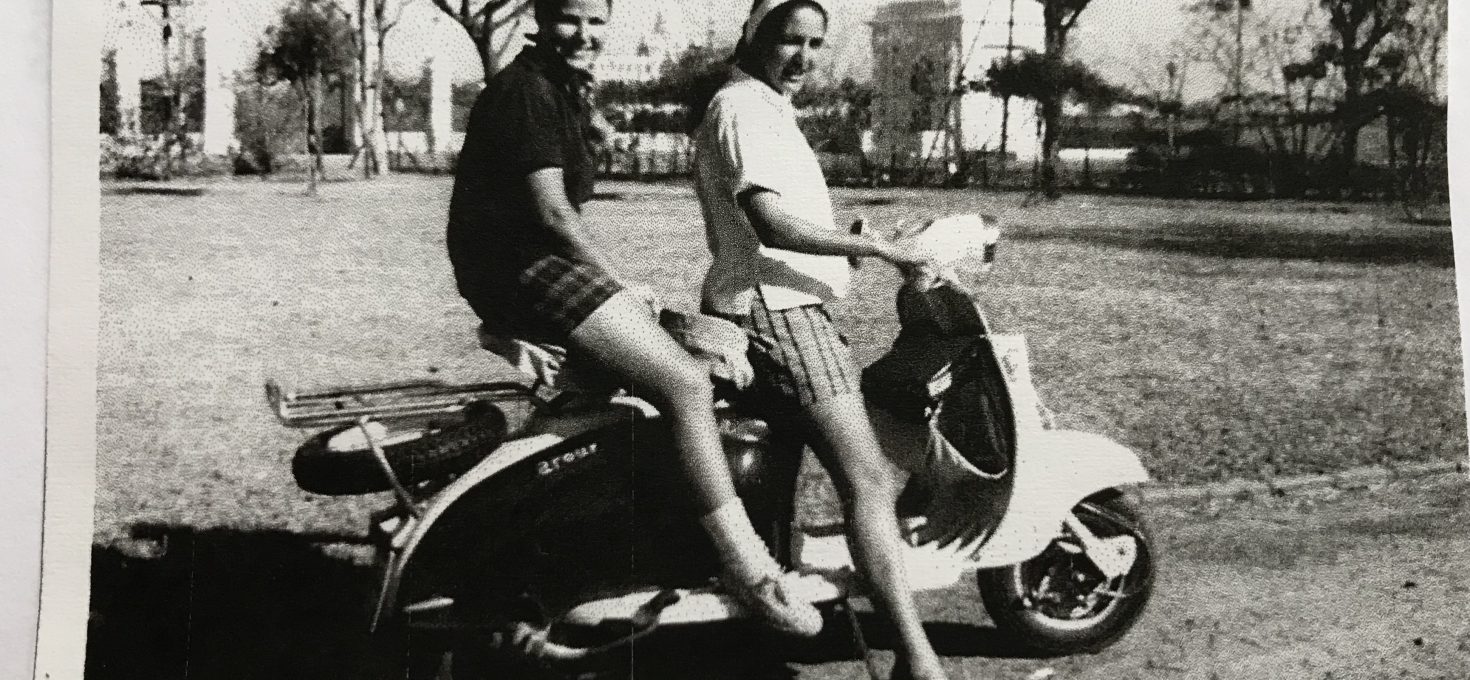“Retirement at sixty-five is ridiculous. When I was sixty-five I still had pimples.” George Burns
Turning fifty sucks. Turning sixty is the pits. No one I know joyfully turns sixty. There is such a huge jump in social stereotyping when you turn sixty even if the day before you were fifty-nine. Fifty-nine is O.K. But sixty is old. That last 24 hours has transformed you into a whole new person even though you did nothing to change your current behaviors. People treat you differently. They expect you to be different. Stereotyping kicks in. You start getting discounts!
One of the worst experiences is when you are labeled “old” when you are not. Doesn’t matter what age you are. I got a text from my daughter’s girlfriend who knew I was writing on aging. She was livid–she had just gone to an “early” movie and the ticket seller had asked her if she wanted the “senior” discount!
Instant stereotyping: early movie means you are old.
Ingrained in our society are lifestyle behaviors that are expected; this is “Social Clock” stereotyping. How do we not fall into these behaviors?
The theory is simple, change is when we become mindful of a negative behavior and replace it with a positive behavior and repeat it often enough until it becomes automatic. For me, I see this new automatic behavior as a new attitude—how you walk, how you talk, how you feel about the world, your life, your hopes, your dreams, your passions. This attitude is you oozing with confidence. It’s this “attitude” that makes you ageless. And it is this attitude that your social world judges you whether you like it or not. If they “read” you as old, you are labeled old. But if they “read” you as younger, they treat you as younger.
What does it take to change my “attitude” and become younger? I began to become aware of everything I did that would label me “sixty”. Of course the first thing that troubled me was the number: 6-0. Just looking at that number created a mind set. I did not feel sixty. I did not look sixty nor did I walk and talk like I was sixty. I needed something to remind myself not to become a “sixty” stereotype. I needed a new number! Become 50? Then I panicked and thought I could never do that. So I wrote down: 55. But that seemed too easy. I needed to push myself. I could easily pass for 55.
“Go for the gold! Make it happen! Pass on the AARP discounts!”
So I crossed out 55 and wrote 50. This physical act was my “trigger”, an intervention–faux placebo. Dr. Ellen Langer from Harvard used placebos in her research. Most people think of them as a sugar pill, but they can be any intervention believed by the patient to be potent and produces physiological changes. Dr. Langer goes beyond that and thinks they are a huge factor in producing results.
And perhaps it’s a personal rebellious reaction to the flip side, what psychologists refer to as the “nocebo effect”: society telling me that I have no control over my aging process. But, I truly don’t believe this.
“I believe you have choices and I’m going to prove you wrong!” Yes, this is more like me. Who has the right to tell me, “At sixty I must act a certain way?”
The behaviors that stereotype us “old”, is what we want to change. Now my job was to notice everything I was doing or saying that made me look, feel or act sixty. I had to stop categorizing and labeling myself. I needed to become aware of negative circumstances and the roles I was playing—senior, retired, divorcee–that were limiting me and not allowing me to experience new things or see old things in a new light.
I refused to be called grandma and picked a name for myself: Granola (Gran-Nola). I rearranged my living room furniture. I cleaned out my closet and renewed my tighter jeans and heels; unloaded my baggy blouses for my old crisp shirts and rediscovered that great leather belt. And, yes! those Southwest Indian silver necklaces, gave away my turtlenecks. But most promising of all, I got back into playing tennis, again.
The good news is that although changing a behavior is hard, these wired patterns of behavior once ingrained become everyday habits. The secret is in not giving up. I thought I would die on the tennis court that first day back!
You won’t be perfect. Everyone slips up. Real positive behavioral change needs to be repeated like any successful theater performance. There will be times we will forget the line or feel uncomfortable. So we try again. The more practice, the easier you are able to act without thinking. It becomes second nature. It becomes automatic. The words come out without thinking.
A winter back on the East Coast was horrendous. Living in Carmel, I invited my high school best friend, Rosemary, to come for a visit and thaw out. We went for a drink at a local place, The Mission Ranch, and I ran into Clint Eastwood who acknowledged me as we have done fundraisers, especially a film screening of his daughter, Alison Eastwood’s directorial debut: Rails and Ties. He came over to meet my girlfriend and as they were exchanging accolades a local male acquaintance whispered.
“Is she your mother?” I gasped and almost choked on my martini.
Watching Rosemary and Clint, I tried to figure out what could have caused such an outrageous assumption. This was an attractive, very active, intelligent older woman deep in conversation with Clint. And then, I got it! In one quick look, Rosemary was stereotyped! She’s wearing a handmade Irish knit sweater, comfy jeans and sensible “walking” shoes! And then there was me in tight jeans, tank top and stilettos.
We have to stop being stereotyped as being old, just because we turn sixty!
see BOOKS for Iris Apfel’s latest book

 IRIS APFEL
IRIS APFEL see BOOKS for Iris Apfel’s latest book
see BOOKS for Iris Apfel’s latest book
